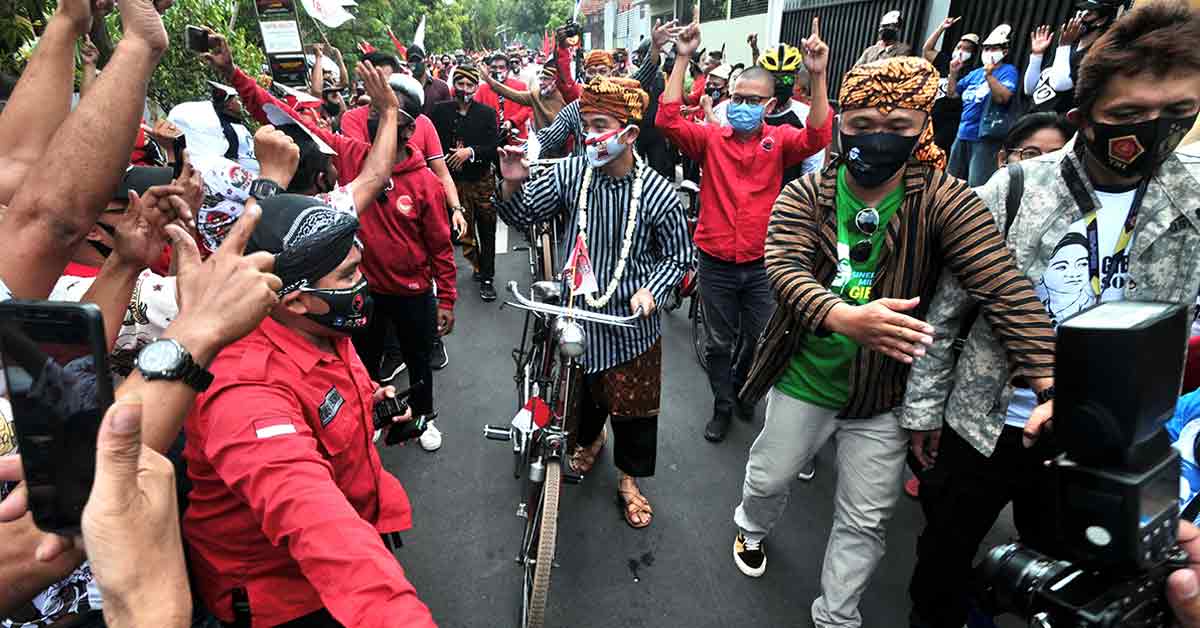Millions of Indonesians went to the polls Wednesday in regional elections held despite warnings of a possible spike in coronavirus infections, as early results suggested the president's son and son-in-law won public office for the first time.
The archipelago of nearly 270 million - the world's third-biggest democracy and fourth most-populous nation - delayed the vote originally set for September as it struggled to contain soaring virus cases.
From the capital Jakarta to the holiday island of Bali, polling station staff in full protective gear enforced social distancing and took voter temperatures before polls closed at 1 pm.
Abdul Rahman Wahab, 24, admitted he was nervous about voting on Sulawesi island.
"Health is my priority for sure, but voting is also an important part of our life in a democratic country," he said.
Islamist parties were looking to score big gains in the world's most populous Muslim-majority nation as they ride a tide of rising religious conservatism.
In the second-biggest city Surabaya, poll workers continued a tradition of donning superhero costumes - dressing as Spiderman and Captain America - to lure some of more than 100 million eligible voters nationwide.
Others were tasked with taking ballot boxes into hospitals so that coronavirus patients could vote from their sickbeds.
"All polling stations were disinfected," said Suprianto, head of a polling station committee in Jakarta's Ciputat district, and like many Indonesians goes by one name.
"We made space as wide as possible to allow for social distancing. Voters were also required to wear masks. If you don't, then you won't be allowed in the polling station."
Voter Nur Oktaviani said the precautions had put her at ease.
"I'm not worried," the 24-year-old said.
"Here, they're complying with health protocols."
'Not Worth It'
Hundreds of hopefuls were vying for 270 positions, including regional governors, district heads and mayors.
Among them was President Joko Widodo's son Gibran Rakabuming Raka, 33, a businessman running for mayor of Solo city in Central Java, where his father, a former furniture seller better known as Jokowi, started in politics.
Jokowi's son-in-law was also vying for public office, stirring questions about whether Indonesia's leader was trying to create a political dynasty more than a year into his second and final term.
Preliminary results showed both men winning their respective contests, while vice-president Ma'ruf Amin's daughter and defence minister Prabowo Subianto's niece were on track to lose their campaigns.
Official results are not expected for several weeks.
At least four election candidates have died from COVID-19 so far, according to independent research group Laporcovid, and more than 1,000 election agency staff were infected ahead of voting day.
Over 580,000 Indonesians have contracted the illness while the death toll stands at 18,000.
But the true scale of the crisis is widely believed to be much bigger, as testing rates are low.
Infections could skyrocket above one million after polling day, warned Hermawan Saputra at the Indonesian Public Health Experts' Association.
"The most worrying thing is that it won't be just young, healthy people casting their votes, but also the elderly, pregnant women and sick people - they're all at high risk," he said.
"The public service announcements and health protocols aren't enough. Health is being trumped by political demands and that's very concerning. It's not worth it."
In the midst of the pandemic, voters had little chance to interact with candidates or understand their platforms, dealing a blow to a democracy that rose from the ashes of the Suharto dictatorship two decades ago.
"Holding regional elections during the pandemic is highly risky and costs a lot of money," said Titi Anggraini, an analyst at the Association for Elections and Democracy.
"It's such a waste." - AFP
